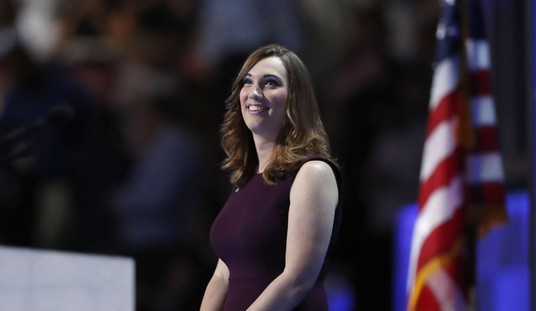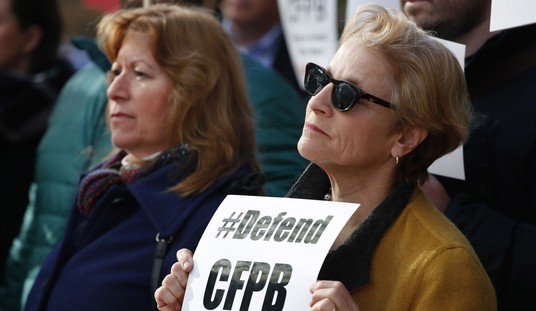Some of the best oppo on Hillary Clinton this cycle is emerging from the supporters and allies of Bernie Sanders. Where the mainstream media is treating Hillary Clinton as visiting royalty, the Sanders people are angry about being defecated upon AND they have more knowledge of the inside baseball of leftwing politics than does anyone on our side. This via The Intercept, a vehicle for raising Glen Greenwald’s profile when he isn’t using sock puppets or cavorting with his Brazilian cabana boy.
THE BERNIE SANDERS campaign in April accused Hillary Clinton of “looting” her joint fundraising committee to fund her presidential campaign, effectively circumventing rules that cap donations at $5,400 per person.
Clinton’s joint committee, called the Hillary Victory Fund, can raise $358,500 per person because it’s supposed to share money with the Democratic National Committee and state parties.
The Sanders campaign pointed to news reports that the fund has been covering expenses for the Clinton campaign instead of spending on down-ballot races.
The Clinton campaign called the charges irresponsible.
But if the Sanders campaign is right, it wouldn’t be the first time something like this happened.
The crux of the matter is this: in order to be able to raise the large per capita donations, “Hill PAC” was required to give about half of its funds to other campaigns. What happened when you put Hillary Clinton next to a big pot of cash was as predictable as putting a voracious tiger next to a tethered goat.
But only 11 percent of the relaunched Hill PAC’s spending ultimately went to candidates, filings show. Between June 2008, when Clinton dropped out of the presidential race, and the PAC’s termination the next summer, Hill PAC raised about $3.9 million but contributed just $421,500 to candidates.
Most top leadership PACs dedicate close to half of what they raise to other candidates in competitive races, according to OpenSecrets.org. In the years after its founding in 2001, Hill PAC spent a larger proportion of its expenditures on contributions to other candidates — but still considerably less than the average leadership PAC. It spent 27 percent on others in 2002, 17 percent in 2004 and 16 percent in 2006, according to FEC filings.
The relaunched Hill PAC spent twice what it gave in contributions to other campaigns on salaries to its own staffers, almost all of whom had worked for Clinton’s campaign or her Senate office. For instance, Clinton campaign treasurer Shelly Moskwa was paid about $11,000 more by Hill PAC in 2009 than the treasurer of Hill PAC itself, Allison Wright. Hill PAC also paid nearly $400,000 in consulting fees to firms founded or closely associated with campaign staffers. The campaign and Hill PAC even shared an Arlington office.
And Hill PAC eventually gave all of its money to Hillary Clinton.
What FEC records show is that Hill PAC’s single largest payment went to Clinton’s campaign, which was about $25 million in debt, including $13 million Clinton lent it herself, when Clinton dropped out in June. While Hill PAC couldn’t legally donate more than $5,000 to Clinton’s campaign account, it was allowed to pay for goods or services from the campaign.
Hill PAC paid $822,492 to the Clinton campaign to rent its list of supporters and their contact information. That alone was nearly twice the amount Hill PAC contributed to down-ballot candidates.
The campaign told the Wall Street Journal in 2009 that Hill PAC paid to use the list for the November election. But filings show Hill PAC didn’t actually pay for the list until January 19, 2009.
Two days after Hill PAC’s payment to her cash-strapped campaign, Clinton was confirmed as secretary of state in the Obama administration.
Hill PAC did not contribute to any candidates after that, and dissolved in July.
In other words, Hill PAC gave de minimus to other candidates and used its funds primarily to benefit Clinton. This let her evade campaign finance laws. This is not trivial:
“The evidence does suggest Hill PAC was used primarily as a slush fund to subsidize Clinton’s presidential campaign, using money raised outside of the limits that apply to the campaign itself, rather than as a fund to support other candidates,” said Brendan Fischer, a campaign finance expert at the Campaign Legal Center, a nonpartisan group that supports campaign finance reform.
The really sad part of this story is that even if you believe Hillary is more competent than Donald Trump you still look at the evidence and say, “okay, I didn’t learn anything I didn’t know.”














Join the conversation as a VIP Member